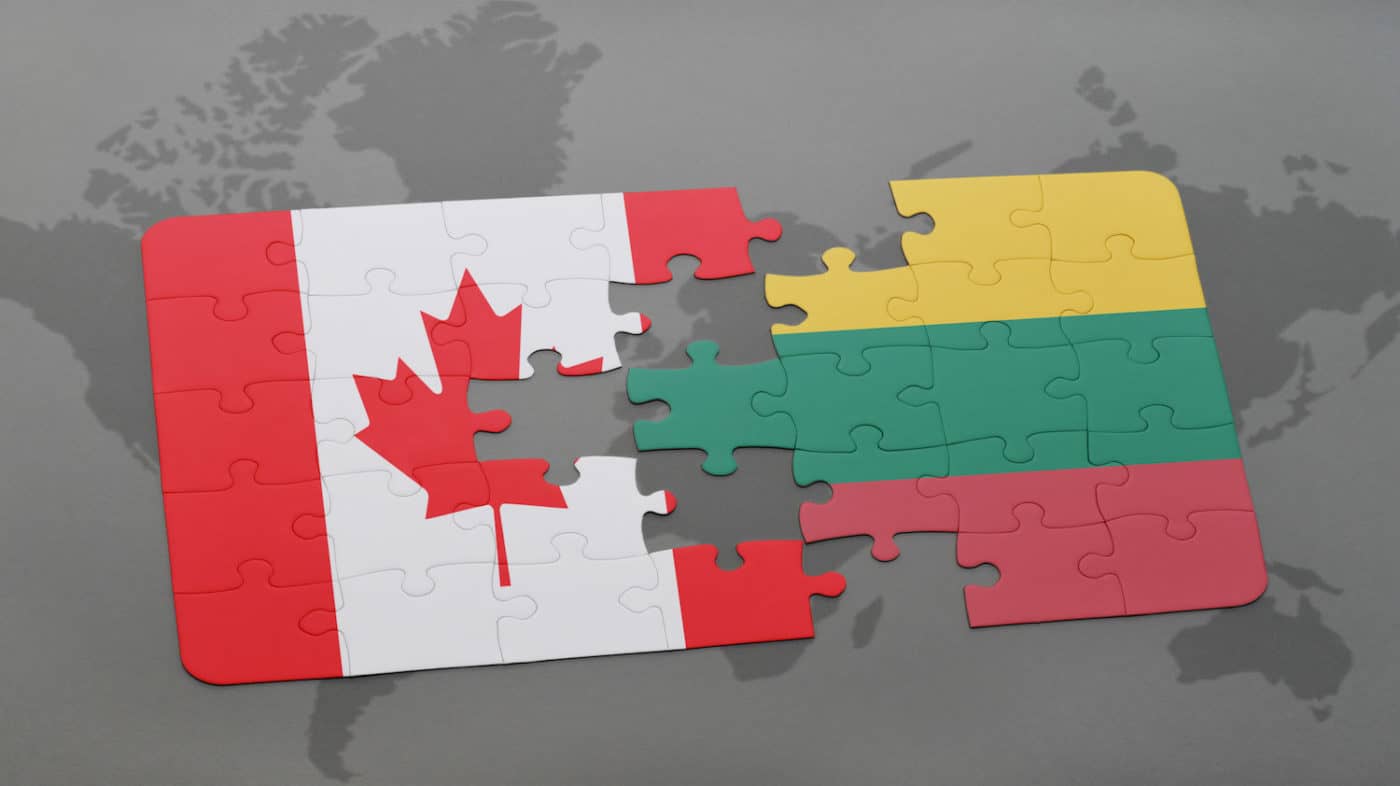About the Canada-EU trade agreement
The Canada-European Union Comprehensive Economic and Trade Agreement (CETA) will create jobs, strengthen economic relations and boost Canada’s trade with the world’s second-largest market. This landmark agreement entered into force on September 21, 2017.
CETA is a progressive free trade agreement which covers virtually all sectors and aspects of Canada-EU trade. For example, prior to CETA’s entry into force, only 25% of EU tariff lines on Canadian goods were duty-free. With CETA, 98% of EU tariff lines are now duty-free for Canadian goods. Once CETA is fully implemented, the EU will have eliminated tariffs on 99% of its tariff lines.
For Lithuanian exports to Canada, this has meant, for example, the elimination of 8 tariffs on furniture, 7.5% tariffs on wheat gluten, and 5% tariffs on some medical and optical equipment. Lithuania will also benefit from increased access to the Canadian cheese market. With CETA, two new annual import quotas for EU cheese are in place: 2,667 tonnes for non-industrial cheese and 283 tonnes for industrial cheese. Over the next five years, these volumes will grow to permanent TRQs of 16,000 tonnes and 1,700 tonnes, respectively.
Beyond tariffs, Canada’s estimated $187 billion (€132 billion) government procurement market (2015) will be of interest to Lithuanian companies, particularly opportunities at the sub-federal level. Canada’s government procurement commitments in CETA are the most ambitious the EU has ever received from any negotiating partner.
The services sector is responsible for the majority of economic activity in Canada and the EU – over 70%. CETA contains provisions on temporary entry that will facilitate the movement of contract service suppliers, investors, independent professions and business visitors.

